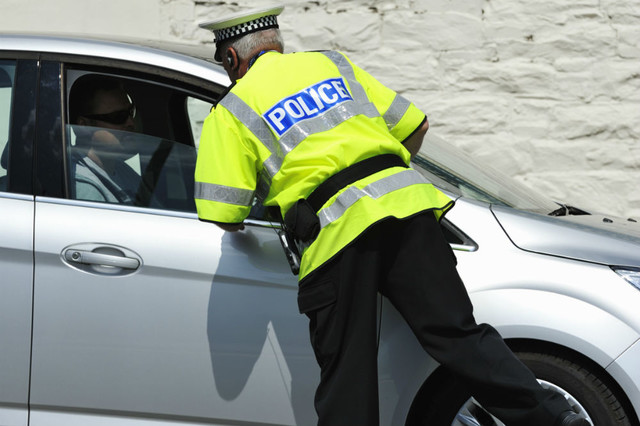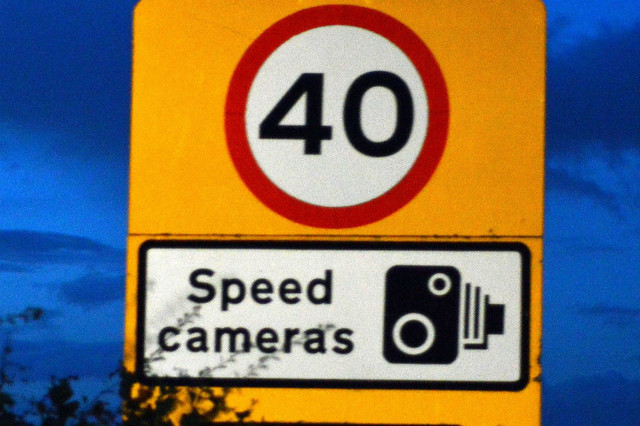It’s something that’s been seen in countless films and TV shows: a man’s pregnant partner goes unexpectedly into labour and he has to do all he can to get to the hospital on time.
However, from a legal point of view, if your wife was having a baby and you broke the speed limit to get her to hospital, would you get in trouble?
To get to the bottom of the issue, Car Keys spoke to solicitor Stephen Oldham, a motoring law specialist and owner of Stephen Oldham Solicitors who’s spent years defending drivers in the courts.
“You’ve got to have a pretty convincing case,” he says. “In other words, it wouldn’t be as simple as just saying that you were taking your wife to hospital and therefore you don’t get in trouble.”
According to Stephen, in a situation like that you wouldn’t have a defence for speeding, but could convince a court that you have a special reason for your licence not to get points.

“Although technically you’ll still be guilty of speeding, if you took the case to court the magistrate might say that they accept that it’s no defence but there’s something special about this case which means we’re not going to put points on your licence,” he said.
“You’d have to convince them that there was no alternative, so they might ask whether you phoned an ambulance or that you weren’t putting her in more danger by speeding. If, say, you were doing 40 in a 30mph zone, then would the 45 seconds that you’ve saved have actually made any difference?”
Matters get further complicated if you’re caught by the police while speeding; officers can’t take mitigating circumstances into account, offering speeders the option of a fixed penalty or for the issue to go to court.
If the penalty’s rejected, the driver would end up having their case taken to a magistrate’s court where they would have to plead guilty and then ask the magistrates to consider their special reasons.
Stephen added: “That’s already going to be a lot more expensive, so you’ve got courts charges, prosecution costs and that sort of thing. Compared to a £100 speeding ticket, even if you win you’d still be paying for a £400 day out at court.”

Consequently, most motorists caught for speeding, whether their pregnant partner is in the passenger seat or not, tend to just suck it up and accept the ticket rather than risk spending more in court.
Stephen said: “Speeding used to be quite an easy thing to defend as you could challenge the detection devices and all the rest of it, but it’s quite tough now. The fixed penalty is a big bauble to dangle in front of people, they’re saying ‘Well, you can pay £100 or you can risk more by going to court’.
“Normally the only time you can defend a speeding case is if it’s where the police have just seen you speeding, all of their speed cameras and radar devices are quite accurate these days.”
Speed traps, radar devices and the like are something which has been a constant source of ire for drivers for years, with polls consistently showing demand for the speed limits on motorways to be raised to 80mph.
Former transport secretary Philip Hammond announced a plan back in 2011 to raise the limit. He said that the 70mph limit had resulted in millions of motorists routinely breaking the law, undermining the principle of policing by consent.

He claimed that that the current limit was introduced back in 1965 when the typical cars of the day had poorer brakes and safety equipment than modern vehicles. He added that a rise to 80mph would “restore the legitimacy” of the system and benefit the economy by “hundreds of millions of pounds”.
However, Mr Oldham doesn’t seem convinced: “It’s a pretty difficult one to have a view on as a lawyer, because as a lawyer you generally tend to deal with the law as it is. I’m not an expert, but I would have thought that if you raise the speed limit then you’re going to make it more dangerous.
“The argument against it is that you just shift the whole thing up. If you have a 70mph limit and everybody’s doing 80, then if you have an 80mph then won’t everybody be doing 90?”
With the recent news that police around the UK are going to start doing away with the traditional margin of error afforded to drivers slightly above the speed limit, though, he said that more could be done to simplify the speed limit system and better inform drivers.
“I suppose the easiest way would be to have three simple limits: 30mph in towns; 50mph out of town and 70mph on motorways/motorway style dual carriageways,” he said.

As well as that, he also suggested reducing the currently drink-driving limit in England from 80mg per 100ml of blood to just 50mg. This would bring the law into line with what has been recently introduced in Scotland and most other European countries.
“Bizarrely, this would mean less work for lawyers as fewer people would be prosecuted. Although you would think that the lower limit would mean more prosecutions it doesn’t,” he says. "The lower limit mean that people tend not to drink at all if they are driving rather than risk one two drinks before they get behind the wheel.”
So any last advice for drivers caught in the unenviable position of having to choose between breaking the law to get their partners to hospital or delivering the baby themselves on the hard shoulder?
“Not just your wife but if you were taking somebody to hospital and it was the only reasonable way of getting there with no reasonable alternative then it would be possible,” Stephen said.
“It would be quite difficult to establish, though not impossible. It’s not a defence, it’s just a special reason not to get points on your licence.”



